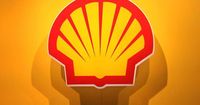Shell shares climbed on Friday, May 2, 2025, after the energy giant posted stronger-than-expected quarterly results and announced a $3.5 billion share buyback program. The company reported first-quarter adjusted earnings of $5.58 billion, or $0.92 per share, surpassing expectations from analysts polled by Visible Alpha. This marks Shell's 14th consecutive quarter of authorizing at least $3 billion in share repurchases.
CEO Wael Sawan expressed confidence in the company's performance, stating, "Our strong performance and resilient balance sheet give us the confidence to commence another $3.5 billion of buybacks for the next three months, consistent with the strategic direction we set out at our Capital Markets Day in March." The buyback plan reflects Shell's ongoing commitment to returning cash to shareholders, even amid fluctuating oil prices.
In stark contrast, rival BP announced a cut in its first-quarter share buybacks, citing economic uncertainty as a reason for the decision. While Shell's shares rose approximately 3% in early trading on Friday, BP's shares have struggled, losing about a third of their value over the past year.
Shell's financial results come at a time when the energy market is experiencing significant volatility. The company reported a 28% drop in net profit compared to the same quarter last year, primarily due to lower oil prices and refining margins. Global benchmark Brent crude prices averaged around $75 a barrel during the January-March quarter, a decline from about $87 a year earlier. On May 2, Brent traded around $62, which is below Shell's breakeven point of $40 per barrel for dividends.
Despite these challenges, Shell's adjusted earnings of $5.58 billion exceeded the average forecast of $4.96 billion from analysts. The company also noted an indicative refining margin of $6.2 per barrel, up from $5.5 per barrel at the end of last year, but significantly down from $12 per barrel a year ago.
Shell's financial stability is underscored by its gearing ratio of 18.7%, which is lower than BP's 25.7%. This financial strength enables Shell to maintain its buyback program, even as it navigates the complexities of the current energy landscape. Finance Chief Sinead Gorman emphasized the importance of share buybacks, stating, "The main (opportunity) for me is, at the moment, the ability to buy back my shares," indicating a preference for returning capital to shareholders rather than pursuing acquisitions.
Shell's strategic direction, outlined during its Capital Markets Day in March 2025, includes a commitment to grow its upstream and integrated gas business by 1% annually through 2030. The company is pivoting away from a low-carbon strategy, focusing instead on bolstering its liquefied natural gas (LNG) capabilities. During the first quarter, Shell's cash flow from operations, excluding working capital, reached $11.9 billion, reflecting its robust operational performance.
Shell's recent acquisition of Pavilion Energy and strategic divestments in Nigeria and Singapore have further strengthened its LNG business and streamlined its portfolio. As part of its ongoing investment strategy, Shell has reiterated its reduced annual budget of $20-$22 billion for 2025, aiming to optimize its capital allocation while continuing to prioritize shareholder returns.
In contrast to Shell's performance, BP has faced challenges that have led to a reduction in share buybacks. The company reported disappointing results in its gas trading business, contributing to its decision to cut back on capital returns. This divergence in strategies highlights the competitive landscape of the energy sector, where companies are increasingly focused on financial resilience amid fluctuating market conditions.
Shell's commitment to returning cash to shareholders is further evidenced by its promise to continue buybacks even if oil prices fall to $50 per barrel. This approach aims to maintain investor confidence and support the company's long-term growth objectives.
As Shell navigates the complexities of the energy market, its focus on LNG and strategic investments positions it as a leader in the transition towards more sustainable energy solutions. The company's ability to adapt to changing market dynamics while delivering strong financial results reflects its commitment to shareholder value and operational excellence.
In summary, Shell's recent quarterly results underscore its financial strength and strategic focus on shareholder returns. With a robust buyback program and a commitment to growing its LNG business, Shell is poised to navigate the challenges of the energy sector while delivering value to its investors.




